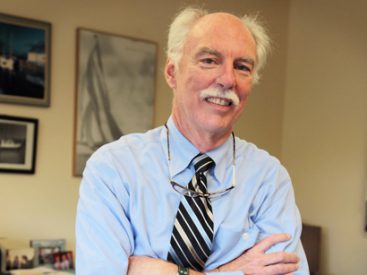News
NPR: Dr. A. Thomas McLellan on Addiction as a Chronic Disease

Dr. A. Thomas McLellan, who has been an addiction researcher for 40 years, a policy maker in federal drug control, and a parent who lost a son to overdose midway through his career, has focused his work on understanding addiction as a disease and how to treat it. McLellan , co-founder of the Treatment Research Institute in Philadelphia and former Deputy Director of the White House Office of National Drug Control Policy spoke to NPR’s Audie Cornish about the changes that are necessary to properly fight, and hopefully one day eradicate, addiction.
In the interview, McLellan states that less than 10 percent of American medical schools offer a course in addiction, rendering the majority of mainstream doctors unequipped to deal with addiction when it emerges in their patients. Since substance use disorders have not been perceived, treated, or insured like other illnesses, very few physicians, nurses, or pharmacists have been trained in the field.
McLellan addresses the question of why busy health care providers should take the time to learn about addiction. “You may say that expanding insurance options, providing more and better care for addicts is a waste of money, or it’s a gift to someone who doesn’t deserve it,” he states. “The real gift is for the rest of health care, because it is impossible to manage most chronic illnesses without some attention to substance use disorders. They’ve been willfully ignored by medicine for decades and it’s costing them roughly $200 billion a year in wasted or inappropriate medical care.”
McLellan also points out the disparity in the way our health system treats chronic diseases like diabetes, in contrast to how addiction is treated. “There is no place that I know of that gives you 30 days of insulin treatment and a hearty handshake and sends you off to a church basement. It just won’t work, so that’s tough,” he says.
McLellan is hopeful that the Affordable Care Act, which requires insurance companies to cover mental illness and addiction treatment the same as they cover physical disease, will help level the playing field. “One thing I’ve found is that in health care, you don’t get the kind of health care that science dictates or that is even economically prudent. You get the health care that you negotiate and that is politically motivated. So for most of my life, there has been no groundswell demanding the kind of care that other illnesses have rightfully come to expect. In my life, the best thing that has ever happened and given people like me hope that your grandkids won’t have the same illness is the Affordable Care Act.”
Now, says McLellan, it is possible, and makes economic sense, to deliver effective, compassionate addiction care. “We can,” he says. “It’s in all of our interests to do it. We need the political will to do it.”